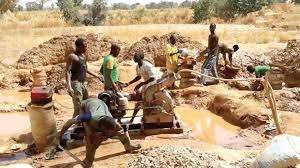Korede Abdullah
A pan-African organization, Corporate Accountability and Public Participation Africa (CAPPA) has alerted the federal government of Nigeria on the need to approach its pursuit of industrial scale of lithium mining with a deep caution and a sense of environmental accountability and protection of the local livelihoods.
The non-profit organization sounded this note of warning in a press release made available to the public on Friday by its Media and Communications Officer, Robert Egbe, in the wake of the Nigerian government’s commissioning of its largest processing plant located in Nassarawa State.
The NGO said it acknowledged the potential of lithium to drive Nigeria’s economic growth and position her at the forefront of the global race for green transition and production of cleaner technologies such as electric cars and inverters, among others. It however raised the concern about the lack of state oversight in mining activities across various parts of the country and its adverse impacts on the environment and local communities.
It regretted that President Bola Tinubu’s recent meeting with Chinese investors who built the plant only urged them to take advantage of the country’s huge market and cheap labour without addressing the core issues of environmental impacts of their activities on the communities.
The release reads in part, “While acknowledging the potential of lithium to drive Nigeria’s economic growth and position her at the forefront of the global race for green transition and production of cleaner technologies such as electric cars and inverters, among others, CAPPA cited concerns regarding the lack of state oversight in mining activities across various parts of the country and its adverse impacts on the environment and local communities.”
It continues, “Lithium extraction activities often result in environmental troubles, mainly as mining companies have been known to appropriate local waters for its processing and even engage in the indiscriminate disposal of waste in open waters and lands utilised by locals.
“In many instances, communities have been violently displaced to facilitate mining operations, mostly driven by foreign interests, not to mention the depressing ecological damage associated with these sorts of activities, especially in our country, where environmental regulations are poorly enforced, and demand for corporate accountability is lacking as with the experience of reckless oil extractivism in the country’s Niger Delta region.
“The Nigerian government and state authorities already cut a picture of negligence and complicity when you interrogate the many unofficial mining activities happening across the country.”
The NGO sent a red light to the government of Nigeria against greenlighting Chinese and foreign investments without robust local control and responsibility to communities and the environment.
It warned that such approvals could not only precipitate familiar patterns of ecocide in the country but also further cement China’s efforts to monopolise the African lithium market while entrenching dangerous working environments that will endanger the health of the people of the local communities.
CAPPA therefore urged the government to enforce strict regulations that prioritised community well-being, including robust environmental protections, fair compensation for land use, and opportunities for local economic development.
The NGO concluded, “Corporations must be held accountable for their actions, and transparency must be demanded and enforced in their operations. Only through these measures can Nigeria break free from the risk of replicating another era of state-approved eco-oppression and build a mining future that is fair and empowering”.



